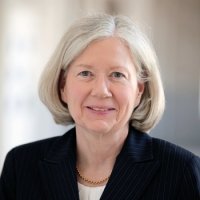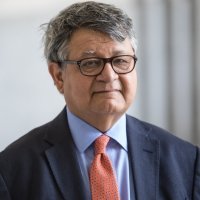The IMF, World Bank, and the Economic Security Challenge
When finance ministers and central bankers gather in Washington in October for the annual meetings of the World Bank and IMF, they will be tasked with addressing the challenges of a global economy that remains fragile and a world that is increasingly divided. Even as all countries faced disruptions as a result of the ongoing pandemic, some have weathered the blows of COVID-19 better than others. All, however, will be tasked with dealing with the financial cost of dealing with the pandemic in varying degrees, and the question of debt sustainability will be a key concern that will need to be addressed by advanced and emerging economies alike. At the same time, the pressing need to address issues that cross borders including climate change remains, which will require sustained economic commitment as well as political will. How have the IMF and World Bank addressed those concerns, and what role can the Bretton Woods institutions play in ensuring global economic stability moving forward?
Selected Quotes
Meg Lundsager
“What has powered this economic recovery has been a tremendous effort by central banks worldwide.”
“The IMF is really not at all enthusiastic about regional trade agreements….trade should be a global benefit, should be open to all, and work through the WTO. Of course, there are a lot of challenges working through the WTO that we are all familiar with… the WTO couldn’t reach an agreement many times and then the U.S. opted for things like NAFTA now the USMCA, and a lot other bilateral agreements.”
“I thought it was terrible that the U.S. walked away from the Trans-Pacific Partnership and had an agreement that covered services in other areas was really something that would have been very helpful for encouraging those kinds of reforms opening up in many of the countries in Asia.”
Suman Bery
"How will what we are seeing in the advanced economies impact non-advanced economies. That also raises the, a question of who is poised to be the locomotive of growth in the next phase.”
“The reality is that the flood of money unleashed by quantitative easing in the United States, and in Europe, and in Japan, and the fact that we are still in the world in the advanced economies of very low nominal interest rates. That has meant that there’s been a wall of private money coming at emerging markets. Now, the question is: is this enough? Is this a stable source of financing? Does it help the emerging markets to be, to return to being locomotives of future growth?”
"It is entirely appropriate for country chairs to express an opinion on indicators [published by the IMF and World Bank],. They know their countries quite well. I think that should be a part of the due diligence process. There is also something called good hearts law, than an indicator that is used for policy that gets corrupted… I think the tension behind the corridors of the World Bank is, do you want something like this to contribute to national debate, or do you actually want to trumpet this as being, received truth..”
Shihoko Goto
“Expectations for both the advanced and developing economies look steady. Growth in Asia is looking particularly strong for this year, and that growth is expected to continue into 2022… all the projections appear to be above the baseline from pre-pandemic levels.”
“We’ve seen an immediate shortage of consumer goods at the immediate onset of the pandemic which was really less about the actual supply but much more about the distribution of goods. But almost two years in, we have continued to see a shortage of semiconductors and we are concerned about future unexpected disruptions that are already leading to reconsideration of critical supplies. Of course, we are redefining what supply chains are, and it’s not simply about cost-effectiveness or efficiencies. It is also about resilience. But there is concern about resilience simply being another way of promoting protectionism and perhaps a new way of economic nationalism.”
Speakers

Former U.S. Executive Director and Alternate Executive Director, International Monetary Fund

Non-resident Fellow, Bruegel (Brussels)
Moderator

Hosted By

Indo-Pacific Program
The Indo-Pacific Program promotes policy debate and intellectual discussions on US interests in the Asia-Pacific as well as political, economic, security, and social issues relating to the world’s most populous and economically dynamic region. Read more
